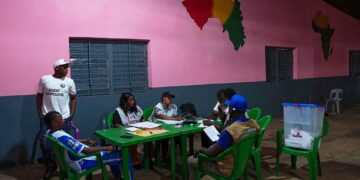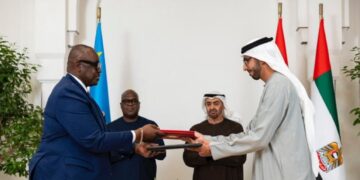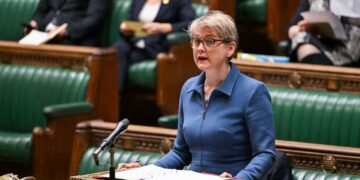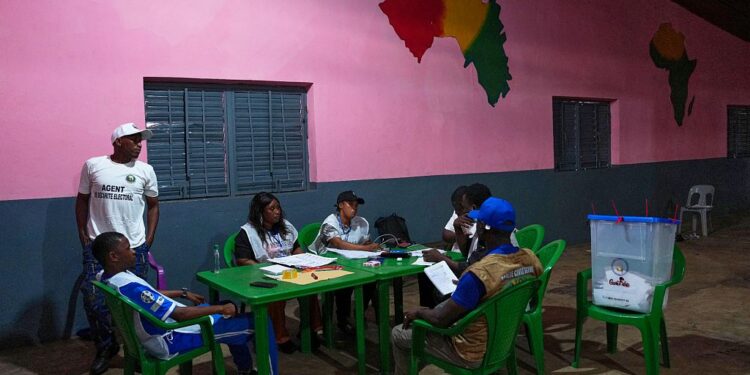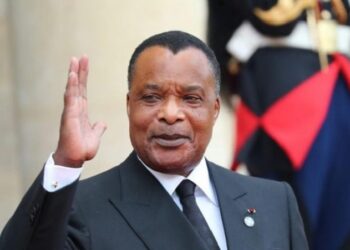By Enyichukwu Enemanna
Vote counting commenced in some polling stations in Guinea Sunday evening in a referendum seeking to draft a new constitution that could allow the leader of the country’s junta to run for the presidency.
The opposition, which has faced clampdown under the military junta however called on their supporters to boycott the referendum.
The military regime had earlier dissolved more than 50 political parties in a move it claimed was to “clean up the political chessboard.”
Weeks before the referendum, it suspended the three main opposition parties, making it impossible for them to hold campaigns and speak to the population.
The referendum is a crucial step in the country’s transition from military to civilian rule.
Critics have however called it a power grab, while others say it is a way for Gen. Mamadi Doumbouya, who took power by force four years ago, to seek the presidency and legitimize his military rule.
Guinea is one of a growing number of West African countries, including Mali, Niger and Burkina Faso, where the military has taken over.
There are 6.7 million eligible voters and the referendum needs a turnout of at least 50% to pass. Some polling stations extended voting time after they were scheduled to close.
The referendum was organized by the Directorate General of Elections, a new body that will oversee the vote count and whose two heads were elected by Doumbouya.
Elections to transit to civilian government are expected to follow in December.
Doumbouya, wearing a white polo shirt and a cap with Guinea logo on it, arrived Sunday morning at a voting station in downtown Conakry with his wife, a French national, and his son.
Dozens of heavily armed special military forces were protecting him from journalists and citizens.
Doumbouya initially said he would not run for the presidency. The referendum if approved creates a new constitution that allows junta members to run for office and extends the presidential mandate from five to seven years and renewable twice.
